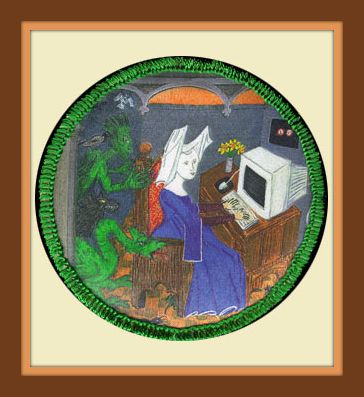 Unaccustomed Earth by Jhumpa Lahiri has gotten a lot of critical acclaim, rightly deserved. I enjoyed her newest collection of short stories. They were exquisitely crafted, but mostly depressing. They weren't really about immigrations, but more about immigrants and the cultural disconnect that occurs between generations, as well as between those that leave their country (India, in this case) and those that remain.
Unaccustomed Earth by Jhumpa Lahiri has gotten a lot of critical acclaim, rightly deserved. I enjoyed her newest collection of short stories. They were exquisitely crafted, but mostly depressing. They weren't really about immigrations, but more about immigrants and the cultural disconnect that occurs between generations, as well as between those that leave their country (India, in this case) and those that remain.
She takes her title from a passage by Nathaniel Hawthorne:Human nature will not flourish, any more than a potato, if it be planted and replanted, for too long a series of generations, in the same worn-out soil. My children have had other birthplaces, and so far as their fortunes may be within my control, shall strike their roots into unaccustomed earth.
However, it seemed to be that none of her characters really flourished in their unaccustomed earth, so I wondered about the title. A NYTimes reviewer theorizes that it isn't so much a statement as a question for Lahiri. "Is it true that transplanting strengthens the plant? Or can such experiments produce mixed outcomes?"
In the end, while the stories are beautifully written, I found them depressing. Maybe I'm too conditioned to want a happy ending. I think I would have been satisfied with just one happy ending, but there were none to be had.
In "Unaccustomed Earth", she tells the story of pregnant Bengali woman newly relocated with her husband to Seattle, whose father comes to visit. They are unable to communicate about the death of his wife and her mother. And he leaves without any resolution or increased emotional closeness.
"Only Goodness" is about a woman and alcoholic brother, and the havoc he wreaks in her life.
I had read some of the stories about Hema and Kaushik in the New Yorker earlier. This section consisted of three inter-related stories taking place over the course of 25 years. I had high hopes for a happy ending here, but instead, it was the most tragic. I had bad dreams all night after finishing these.
I like this description, from another NYTimes review:Jhumpa Lahiri’s characters tend to be immigrants from India and their American-reared children, exiles who straddle two countries, two cultures, and belong to neither: too used to freedom to accept the rituals and conventions of home, and yet too steeped in tradition to embrace American mores fully. These Indian-born parents want the American Dream for their children — name-brand schools, a prestigious job, a roomy house in the suburbs — but they are cautious about the pitfalls of life in this alien land, and isolated by their difficulties with language and customs. Their children too are often emotional outsiders: having grown up translating the mysteries of the United States for their relatives, they are fluent navigators of both Bengali and American culture but completely at home in neither; they always experience themselves as standing slightly apart, given more to melancholy observation than wholehearted participation.
Tuesday, February 10, 2009
Unaccustomed Earth
Labels:
Off the Stacks
Subscribe to:
Post Comments (Atom)

5 comments:
I loved the background you gave here. She might be my favorite author right now. I plowed through Unaccustomed Earth and took in every word, but never philosophized about the title...so interesting!
I think Becca first introduced me to JL, if I remember correctly. Her writing is just so beautiful to me. Her stories are ones that need to be told. I see a lot of Ed's struggles in her writing...although the cultural pressures are slightly different. I also love The Namesake, although many in my book club got frustrated with its slow pace.
Besides the frustration with the bad endings (which I agree...she could at least make one of them happy...life doesn't suck that much) I can't tell if you enjoyed it or not from your review? Would you read more of her?
Yes, I really loved her stories, and her writing. They seemed so real. The one about the pregnant woman and her father--I wanted them to have a moment where they connected, but it just never happened. And that kind of thing seems so routine. But, she was able to make it into a beautiful story. The way Lahiri is able to get into her characters' minds and explain them is incredible. She writes about immigrants, but her themes are so far-reaching.
A few years back, I read her other two books, and now I have the film version of The Namesake sitting on my shelf. Have you seen it?
No, I didn't know about the movie. I am going to have to check it out.
I definitely didn't like Namesake the movie as much as I enjoyed the book. The book (as all are of Lahiri's writings) was just so powerful and insightful about human nature. And maybe it's my cynicism coming through, but I kinda like depressing tales. I guess they seem more genuine than the classic happy endings. It's easier for me to connect to writing that feels sincere and genuine.
I watched the movie last night, and I didn't really like it much. I don't think her writing adapts very well to movies.
Post a Comment